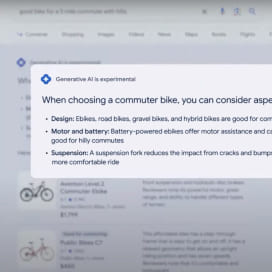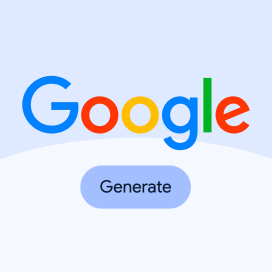Written by Fernando Maciá
Índice
Does Yahoo!’ s acquisition of AltaVista and AlltheWeb mean that these two popular search engines have their days numbered?
Yahoo! loses prominence
After being ousted from its worldwide leadership in Internet content search by Google, Yahoo! realized early on that it would need to offer the results of a crawler in addition to its own directory results that had brought it to that position. Yahoo! found that users preferred the results returned by search engines to those from directory-type listings. This led Yahoo! to sign an agreement with its competitor Google in June 2000, whereby the latter would act as a provider of crawler-type results for Yahoo! for a period ending in 2004, although it did not seem that this strategy could be viable in the long term for two giants competing for Internet search leadership.
Concentration of search engines
It was clear that Yahoo! would sooner or later look for an alternative, so in December 2002, it acquired the provider of crawler-derived results, Inktomi. And in 2003 it also acquired the paid-for results service Overture, which at the time had agreements to serve its listings to MSN Search y AOL Europeamong others, shortly after Overture acquired AltaVista and AlltheWeb trackers as part of a strategy aimed at completing its own paid listings.
However, maintaining parallel development of its own directory alongside AltaVista’s and AlltheWeb’s tracker results would have involved high costs, so the concentration process made it advisable to bring the work of the three development teams together, even despite their own geographic and cultural differences (AltaVista was based in Palo Alto, California, while AlltheWeb was headquartered in Norway).
Under the Overture umbrella, the process of integrating the AltaVista and AllTheWeb development teams had already begun. It is clear that Yahoo! bet on pushing this process even further to replace these two old search engines with a totally new database, by a search engine with its own brand. Although at first it was thought that Yahoo! could simply replace the results previously served by Google with those of its Inktomi crawler, it was soon noticed that there were substantial differences between the new results served by Yahoo! and those served by Inktomi to the portals that were fed from this database, so everything indicated that Yahoo! was implementing a new indexing algorithm.
New Yahoo! algorithm
This fact has been confirmed since February 2004 by checking the impact of the visit of the new Yahoo! crawler on the web traffic statistics of the different sites. For months, Yahoo! was criticized for keeping the results served by its main competitor, Google, for so long. Now, however, we can assume that Yahoo! had been taking advantage of the time to create and fine-tune a new search technology.
Indeed, it would have been suicidal for Yahoo! to launch a search engine that could not meet the expectations of its millions of users in terms of quality, relevance and pertinence of its results. Something that Google has proven to be exactly what users of this type of service demand. What can we expect regarding the future evolution of AltaVista and AlltheWeb? Inktomi’s results have been full of spam and irrelevant listings for quite some time. AltaVista, years ago one of the “big boys”, continues to produce good results, although the database it manages is rather small. AlltheWeb, on the other hand, has proven to be able to produce results of the same quality as Google, both in terms of relevance and depth of results.
For this reason, the suspicion that these two search engines may disappear is received with a certain melancholy. In the short term, Yahoo! will replace their results with those of its own search engine. However, Yahoo! will keep AltaVista and AlltheWeb as experimental portals, so we can expect that there will be some differences in terms of advanced search support, etc. but the core technology will be entirely new. The Inktomi tracker never had its own portal. It currently serves results to portals such as MSN Search and HotBot. It is not clear that it will be replaced by Yahoo! search engine results, although it is likely, as well as that the collaboration agreement for the future with MSN Search is in danger, especially after the latter’s announcement of the launch of its own search engine in July 2004.
2004: a year of concentration
The question remains as to whether it was necessary for Yahoo! to acquire these three search engines in order to develop its own. We can think that the first objective after the acquisition of Inktomi was to unseat Google. However, Yahoo! soon became convinced that it would take more than that to compete with the web search giant, not least because of the need to bring in the revenue that only a paid inclusion service can bring in. That’s why they acquired Overture, along with the plus of the two search engines recently acquired by the paid listing service, AltaVista and AlltheWeb. So, in a single move, Yahoo! gained the services of several highly skilled and experienced development teams and also avoided MSN acquiring all this technology.
With MSN Search announcing the launch of its own search engine in July, the Internet search landscape for 2004 is dominated by the focus on competition between these three giants, Google as the absolute leader and two contenders for the title: former world champion Yahoo and the new challenger from Microsoft’s Internet arm, MSN Search.




